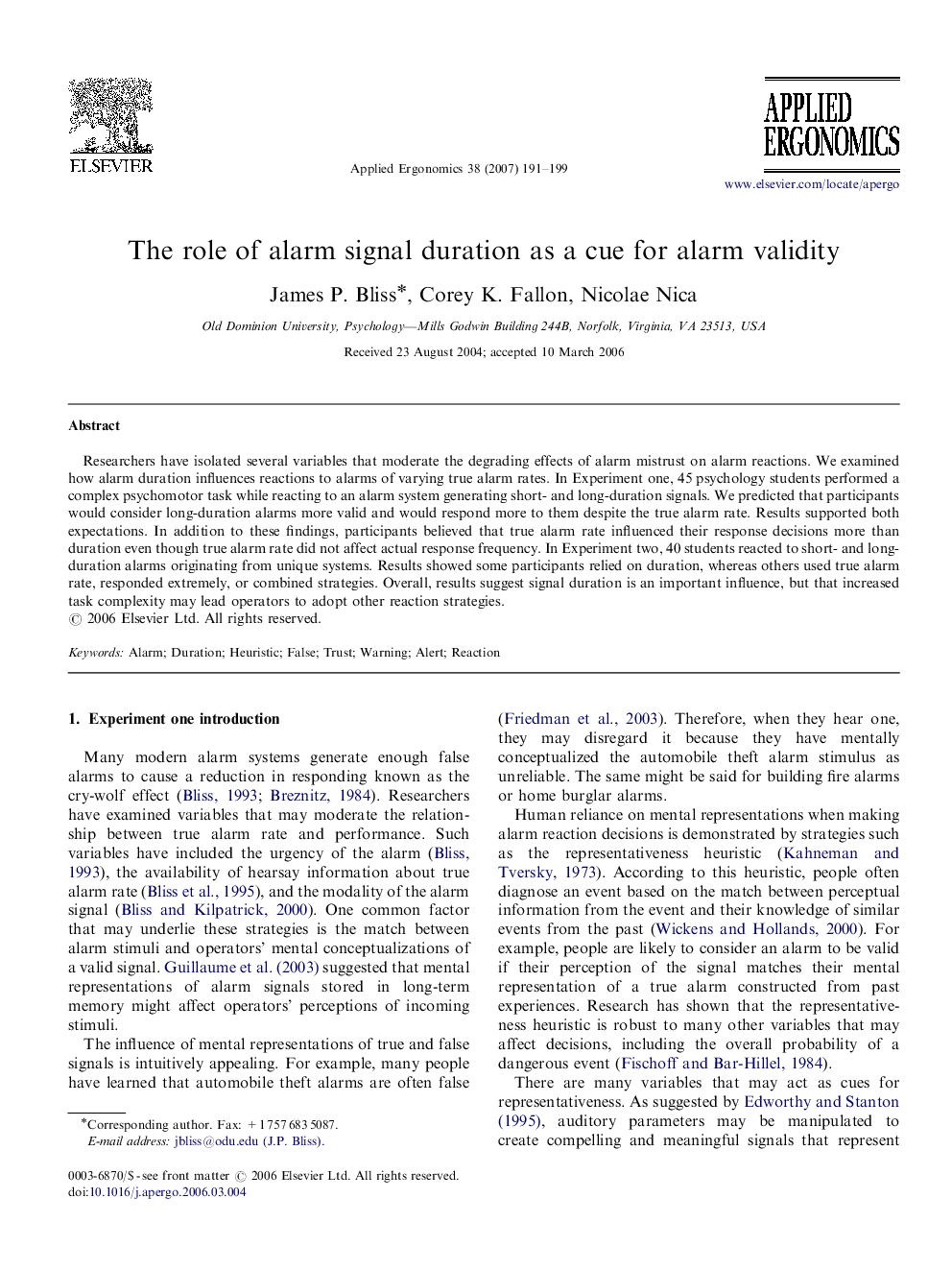| Article ID | Journal | Published Year | Pages | File Type |
|---|---|---|---|---|
| 551479 | Applied Ergonomics | 2007 | 9 Pages |
Researchers have isolated several variables that moderate the degrading effects of alarm mistrust on alarm reactions. We examined how alarm duration influences reactions to alarms of varying true alarm rates. In Experiment one, 45 psychology students performed a complex psychomotor task while reacting to an alarm system generating short- and long-duration signals. We predicted that participants would consider long-duration alarms more valid and would respond more to them despite the true alarm rate. Results supported both expectations. In addition to these findings, participants believed that true alarm rate influenced their response decisions more than duration even though true alarm rate did not affect actual response frequency. In Experiment two, 40 students reacted to short- and long-duration alarms originating from unique systems. Results showed some participants relied on duration, whereas others used true alarm rate, responded extremely, or combined strategies. Overall, results suggest signal duration is an important influence, but that increased task complexity may lead operators to adopt other reaction strategies.
